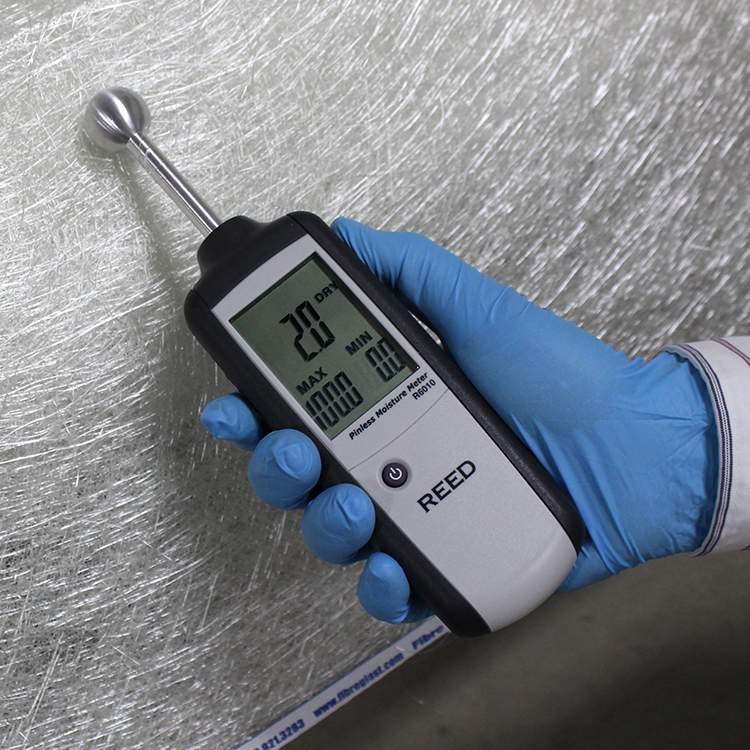The Ultimate Overview to Moisture Meters: A Comprehensive Overview and Just How They Can Save You Cash
In the world of building upkeep, construction, and numerous markets, the value of accurately gauging wetness degrees can not be overstated. Moisture meters work as important tools in identifying and keeping an eye on moisture content in products, helping in protecting against expensive damages and making sure the quality of items. Understanding the subtleties of different sorts of moisture meters, their applications, and the prospective cost-saving benefits they use can be a game-changer for companies and specialists alike. Finding how these tools can not only simplify processes yet additionally contribute to economic savings is a journey worth getting started on.
Kinds of Moisture Meters
One common kind is the pin-type dampness meter, which gauges the electric resistance between two pins inserted right into a product. Pinless wetness meters, on the other hand, use electromagnetic sensing unit plates to check a larger area without causing damages to the product's surface.

Infrared wetness meters gauge the thermal homes of a product to determine its wetness web content non-invasively, making them useful for applications where pin or pinless meters may not be ideal. Understanding the different kinds of dampness meters available can assist industries choose the most proper device for their specific wetness dimension demands.

Advantages of Using Wetness Meters
Dampness meters use very useful benefits in properly analyzing and checking wetness levels in diverse materials and atmospheres. One of the key benefits of making use of dampness meters is the prevention of potential damages triggered by excess moisture.
Furthermore, making use of wetness meters can result in increased power effectiveness. By identifying locations with high moisture degrees, such as leakages or poor insulation, changes can be made to enhance energy preservation and decrease energy expenses. In farming setups, moisture meters play an essential duty in enhancing crop returns by enabling farmers to check soil dampness levels and make educated irrigation choices. Generally, the advantages of making use of moisture meters extend across different industries, supplying affordable remedies and promoting better top quality control methods.
Just How to Pick the Right Moisture Meter
Selecting the suitable wetness meter entails considering essential variables such as material compatibility, measurement variety, and calibration precision. When picking a dampness meter, it's vital to make sure that the meter is ideal for the specific material you will be testing. Different materials have varying electric homes that can impact dampness analyses, so picking a meter made for your product is essential for precise results. Furthermore, think about the measurement series of the wetness meter. Make sure that the meter can identify dampness degrees within the array required for your applications. Calibration accuracy is another vital variable to maintain in mind. Go with a moisture meter with reputable calibration to make certain specific and constant readings. Some meters might call for regular calibration modifications, so comprehending the calibration process is necessary. By thoroughly assessing these factors, you can choose a dampness meter that fulfills your requirements and offers accurate dampness dimensions for your projects.
Correct Methods for Moisture Meter Usage

Price Financial Savings Via Wetness Meter Applications
Just how can the calculated use of wetness meters result in significant price financial savings throughout various industries? Dampness meters play an essential role in price savings by avoiding potential damages and making sure quality assurance in different sectors. In the farming market, moisture meters help in establishing the ideal time for gathering crops, protecting against excess or over-drying wetness that can impact the last product's quality. This specific tracking helps farmers stay clear of unnecessary losses and optimize their return.
In a similar way, in building, dampness meters help stop costly damages by discovering dampness levels in structure products, such as wood or concrete, which can cause architectural issues otherwise Learn More Here resolved quickly. By recognizing problem areas beforehand, service providers can take corrective steps to stay clear of extensive click over here repair work or substitutes, inevitably conserving time and money.
Moreover, in the food handling sector, wetness meters are necessary for monitoring product quality and making sure conformity with safety policies. By precisely gauging wetness web content in food, manufacturers can prevent putridity, preserve freshness, and decrease waste, leading to considerable expense financial savings. Generally, the critical application of dampness meters is a valuable investment that can lead to substantial cost reductions and improved efficiency throughout numerous sectors.
Verdict
Finally, wetness meters are important tools for measuring and detecting moisture degrees in different materials. By utilizing the right dampness meter and complying with appropriate techniques, users can properly stop expensive damages brought on by excess dampness. Buying a quality dampness meter can cause considerable cost financial savings in the lengthy run by identifying possible problems at an early stage and enabling timely remediation. Inevitably, wetness meters are important tools for preserving the integrity and long life of structures and products.
Wetness meters serve as vital devices in identifying and checking moisture web content in materials, assisting in avoiding pricey damages and making sure the top quality of products. Infrared wetness meters gauge the thermal residential properties of a material to identify its wetness web content non-invasively, making them useful for applications where pin or pinless meters may not be appropriate.Dampness meters offer indispensable benefits in properly assessing and keeping an eye on moisture levels in diverse materials and atmospheres. In farming setups, dampness meters play a crucial role in optimizing crop yields by allowing farmers to keep an eye on dirt dampness degrees and make educated watering choices.In index conclusion, moisture meters are valuable tools for detecting and measuring dampness degrees in numerous products.
Comments on “Why Every Home Owner Demands a Moisture Meter: Key Advantages and Features”